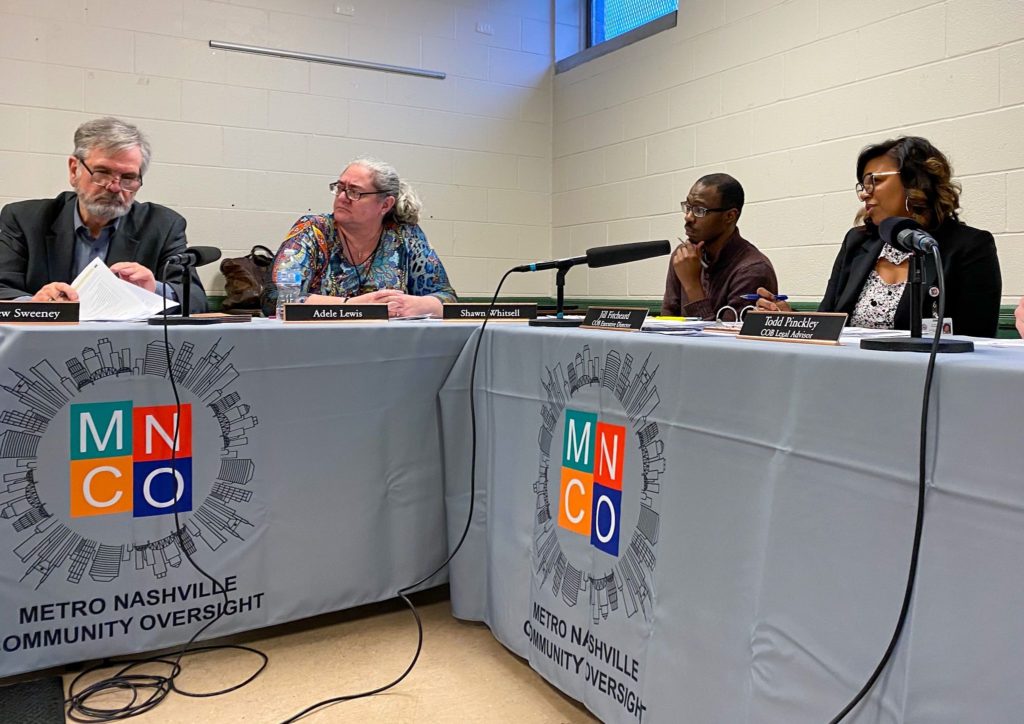
Mayor Freddie O’Connell has announced that Nashville’s Community Oversight Board will likely keep its current staff — including Executive Director Jill Fitcheard — even after it is reconstituted as a Civilian Review Board.
Earlier this year, the state legislature passed a new law abolishing community oversight boards in Tennessee, and replacing them with civilian review boards that don’t have as much power. As part of that transition, the board’s 14-person staff was told last week that they would be laid off and would have to reapply for jobs within Metro government.
However, in a statement Monday, O’Connell said he expects to recommend Jill Fitcheard as executive director and to retain current staffing levels.
“Civilian oversight is important, and I am committed to getting our Civilian Review Board up and running as quickly as possible,” he said.
“I have also confirmed that our human resources department will work with current employees who are in the unfortunate state-mandated position of having uncertainty surrounding how they are employed.”
The transition from Community Oversight Board to Civilian Review Board is expected to be complete within the next six weeks. In its new form, the board will have fewer members, the mayor will have more power over board member appointments, and the board will lose the ability to obtain confidential records on cases that are still open and under investigation by police.
Metro Legal Director Wally Dietz said that the city decided not file a lawsuit to prevent this transition because they did not have a legal claim they could file “in good faith.” Although the oversight board did engage independent counsel, they ultimately decided against suing the state as well.
Nashville’s COB formed after a 2018 referendum, when more than 134,000 Nashvillians voted to establish the board as a way to increase police accountability. That followed the police killings of Jocques Clemmons in 2017 and Daniel Hambrick a year later. The measure won by a 20% margin citywide, and it won a majority in 29 of 35 Metro Council districts.

